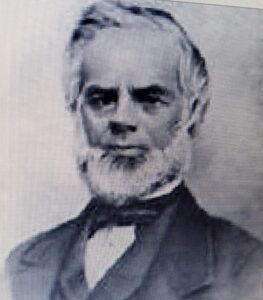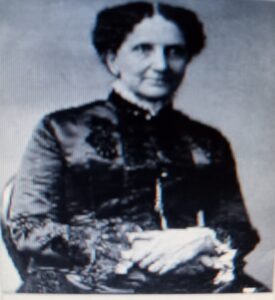
 The Phineas Quimby controversy
The Phineas Quimby controversy
Phineas Quimby (1802-1866) began to study the powers of the mind in 1838 after he heard a French hynotist, Charles Poyen give a series of lectures in Belfast, Maine. Over a period of years he developed a system of mind healing which he called, “Science of Health”. It is important to note that on at least one occasion, he called his discovery “Christian Science”. Mrs. Eddy (than Patterson) became a student of Quimby’s in 1862. Quimby had every one of his students make a copy of his manuscript. It is alleged that Eddy used her copy as the foundation for her book Science and Health with Key to the Scriptures. This is something that she denied her entire life. My friend Tanner Johnsrud, also an ex Christian Scientist who was a Christian Science practitioner for a number of years, wrote an article entitled 1866 or 1864 which, among other things, sheds additional light on this. While the Phineas Quimby controversy has never been completely resolved one way or the other, there is absolute proof that Eddy was not above plagiarizing.
Accusations of plagiarism by Mary Baker Eddy
Mary Baker Eddy publicly denounced plagiarism whenever the need arose, but it was discovered that she was a great offender of copying others works. There are several documented instances of her plagiarism. Consider this from Murray’s English Reader, a collection of prose and poetry, published from 1799 until the mid 1840’s. It’s interesting to note that when she died, she had a copy of this book in her library. She obviously wasn’t very good at covering her tracks.
Murray’s English Reader, p.89 (note statements in bold type)
|
Miscellaneous Writings, by Mary Baker Eddy, p.147
My beloved Students: Another year has rolled on, another annual meeting has convened, another space of time has been given us, and has another duty been done and another victory won for time and eternity? Do you meet in unity, preferring one another, and demonstrating the divine Principle of Christian Science? Have you improved past hours, and ladened them with records worthy to be borne homeward? Have you learned that sin is inadmissible, and indicates a small mind? Do you manifest love for those that hate you and despisefully use you? The man of integrity is one who makes it his constant rule to follow the road of duty, according as Truth and the voice of his conscience point it out to him. He is not guided merely by affections which may some time give the color of virtue to a loose and unstable character. The upright man is guided by a fixed Principle, which destines him to do nothing but what is honorable, and to abhor whatever is base or unworthy; hence we find him ever the same—at all times the trusty friend, the affectionate relative, the conscientious man of business, the pious worker, the public-spirited citizen. He assumes no borrowed appearance. He seeks no mask to cover him, for he acts no studied part; but he is indeed what he appears to be, –full of truth, candor and humanity. In all his pursuits, he knows no path but the fair, open, and direct one, and would much rather fail of success than attain it by reproachable means. He never shows us a smiling countenance while he meditates evil against us in his heart. We shall never find one part of his character at variance with another. Lovingly yours, MBE September 30, 1895 |